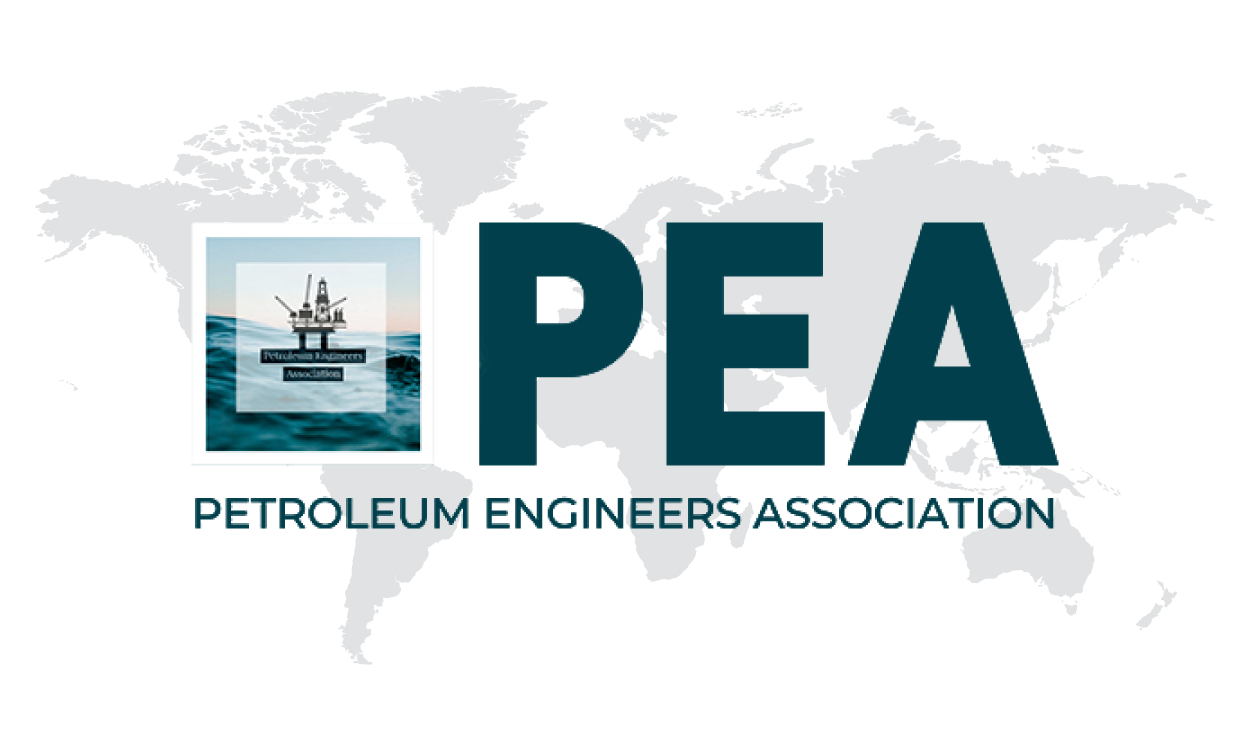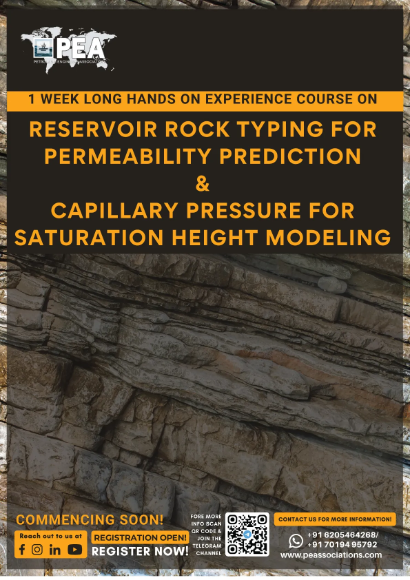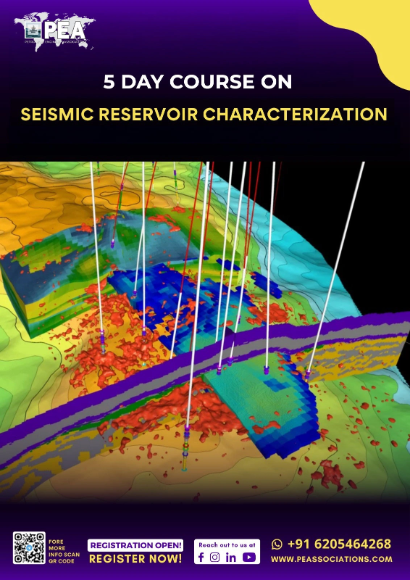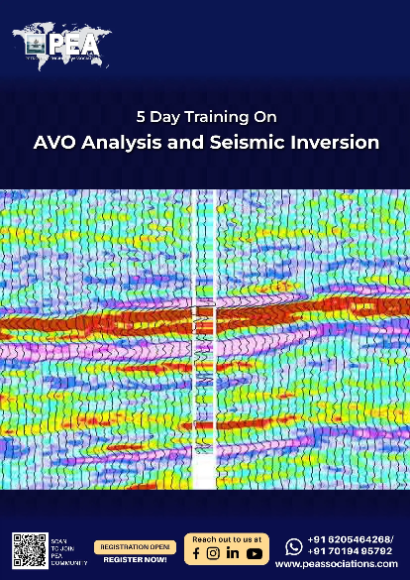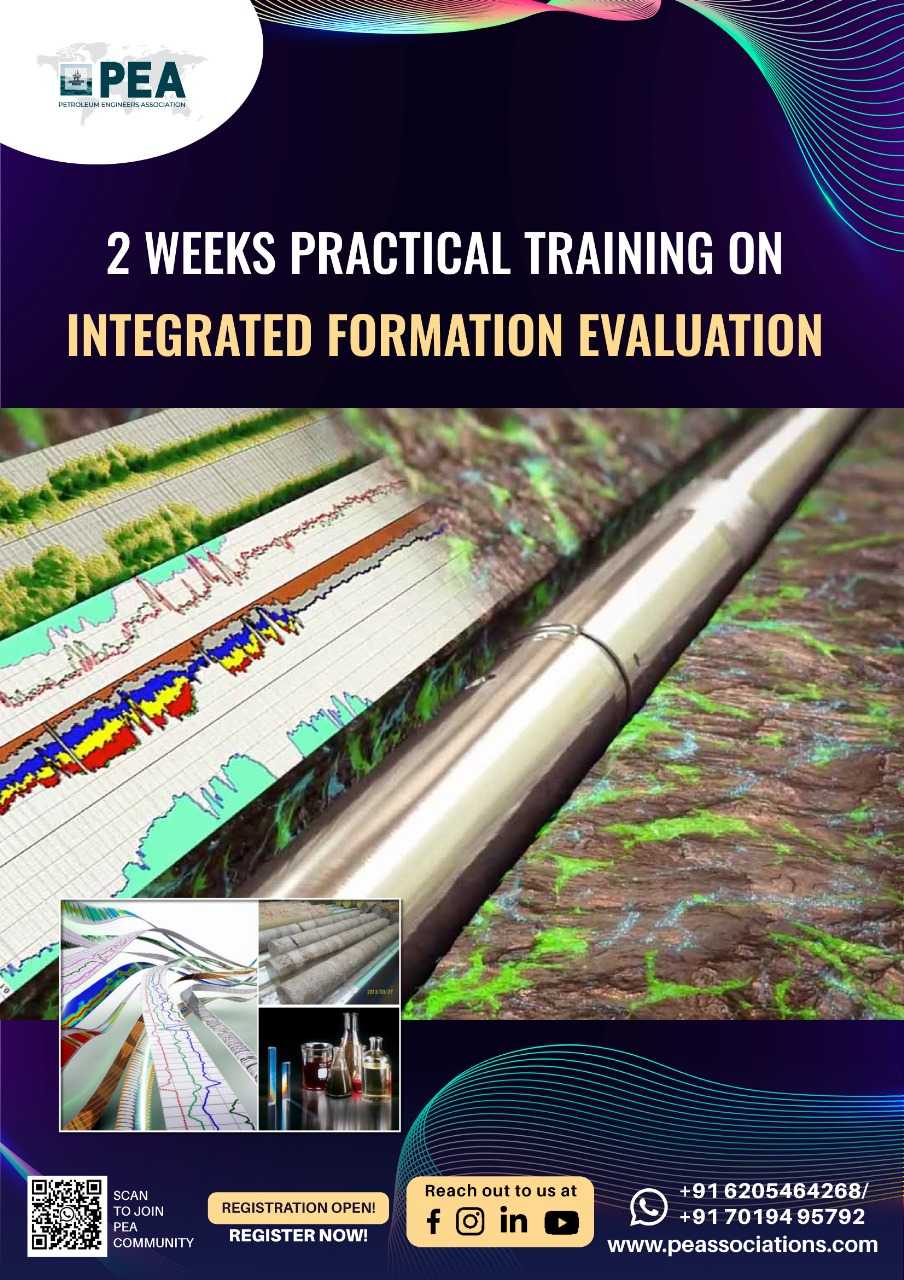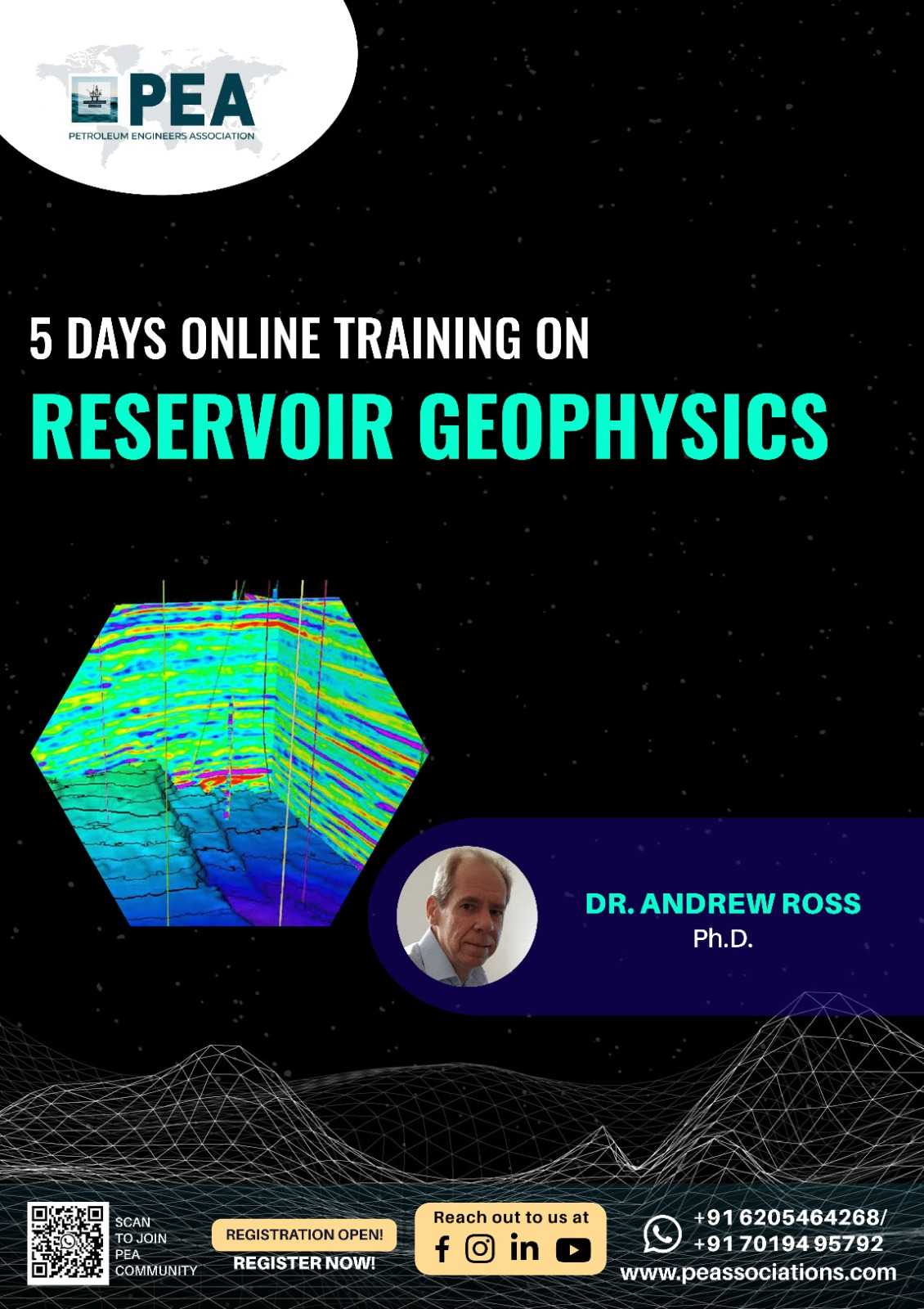Integrated Petrophysical Approaches for Advanced Formation Evaluation
| Code | Date | Time | Duration | Location | Currency | Team of 10 Per Person | Team of 7 Per Person | Early Bird Fee Per Person | Normal Fee Per Person |
|---|---|---|---|---|---|---|---|---|---|
| PEA-IFE-26 | 06 - 12 Jul 2026 | 10:30 PM Indian Time |
3 Hours Per Day
|
Zoom Online
|
USD
|
1150
|
1250
|
1500
|
2000
|
The Classes will be via Online (Zoom) from monday to Saturday with 3 hours per session.
Boost your team's skills and your budget! Enjoy group discounts for collaborative learning. Send an inquiry to info@peassociations.com.
Integrated Petrophysical Approach’s for Advanced Formation Evaluation
This course offers a comprehensive, integrated approach to modern petrophysical analysis for advanced formation evaluation. Participants will gain the skills and techniques needed to extract more value from well logs, core data, and reservoir models—ensuring accurate reservoir characterization and optimized field development strategies.
Description
The "Integrated Petrophysical Approaches for Advanced Formation Evaluation" course is designed to equip geoscientists, reservoir engineers, and petrophysicists with in-depth knowledge and practical tools to perform integrated formation evaluation. With an emphasis on combining data from various sources—such as well logs, core analysis, and rock physics—this course helps professionals develop a holistic understanding of reservoir quality and hydrocarbon potential.
Formation evaluation is a critical part of understanding subsurface reservoirs and ensuring the success of exploration and production operations. With growing data complexity and the demand for higher accuracy in reservoir assessment, an integrated petrophysical approach is now essential.
This course introduces participants to the latest methodologies in petrophysical interpretation, focusing on how to integrate multi-source data and apply it effectively for formation evaluation. Whether working in clastic or carbonate settings, the insights gained will significantly enhance decision-making and reduce uncertainty in reservoir characterization.
Understand the fundamentals and advanced concepts of petrophysical analysis
Integrate data from core, log, and rock physics sources for robust formation evaluation
Apply modern interpretation techniques for porosity, permeability, saturation, and lithology
Identify reservoir and non-reservoir zones using integrated workflows
Evaluate formation quality for field development planning
Utilize software tools and case-based learning for real-world application
The course combines interactive lectures, hands-on exercises, group discussions, and case studies. Practical sessions using real datasets will allow participants to apply learned concepts in a realistic context. Participants will also have access to petrophysical interpretation tools and software demonstrations where applicable.
Improve the accuracy and consistency of formation evaluation across disciplines
Enhance collaboration between petrophysicists, geologists, and reservoir engineers
Reduce uncertainty in reservoir models, leading to better development and investment decisions
Increase operational efficiency through data-driven insights and techniques
A solid foundation in advanced petrophysical techniques
Practical experience working with real-world datasets and software tools
Confidence in performing integrated formation evaluations independently
Enhanced professional skills that contribute directly to field development and asset evaluation projects
Petrophysicists
Geologists and Geoscientists
Reservoir Engineers
Subsurface and Asset Team Members
Technical Professionals involved in formation evaluation, reservoir studies, or well planning
Professionals transitioning into petrophysics or looking to expand their formation evaluation expertise
Day 1
(Introduction & Log Quality Control)
What is Petrophysics?
What are the Rock Physical properties?
What is Well Logging?
Logging Operations and Log Quality Control
Day 2
(Open hole Logging Tools)
Lithology Tools
Porosity Tools
Density & Neutron combination
Resistivity Tools
Day 3
(Core Data Integration & Formation Testing)
Core-Log Data Integration
Wireline Formation Pressure: Theory & Sampling
Pressure Gradient Analysis using software application
Day 4
(Pre Analysis computations)
Database setup, data loading and LQC
Data presentation
Depth shift between different well data (WL, LWD,...)
Curve Splicing (merge) between different log runs
Data Editor
Lithology identification using different cross plots
Reservoir zonation
Precomputations (Create temperature curve)
Flags (quality & mineral flags)
Pickett plot (Rw & cementation exponent determination)
Day 5
(Deterministic & Probabilistic Multi-Models Combination method)
Quanti Elan-initialization
Construction of formation evaluation models
Combining multi-models
Quanti-elan Post Processing
Day 6:
Practical Software Application (Deterministic & Probabilistic Multi-Models
Day 7:
Fundamentals of Cased Hole & Production Logging Evaluation
Gamma ray
Acoustic logging
Neutron logging
Pulsed neutron capture and spectral logging
Production logging
On successful completion of this training course, PEA Certificate will be awarded to the delegates
Your expert course leader is a seasoned petrophysicist with 12 years of industry experience specializing in reservoir characterization and formation evaluation. He possesses deep expertise in advanced well log interpretation, core sample analysis, and integration of petrophysical data to optimize hydrocarbon recovery. Throughout his career, he has contributed to multidisciplinary projects, providing critical petrophysical insights to exploration, appraisal, and development teams. Known for his practical application of petrophysics principles, he regularly supports data acquisition planning, quality control, and delivers high-impact technical training to oil and gas professionals worldwide. His strong collaboration skills enable effective liaison across geoscience, reservoir engineering, and drilling disciplines, driving better subsurface understanding and project success.
Frequently Asked Questions
All course bookings made through PEA are strictly non-refundable. By registering for a course, you acknowledge and accept that all fees are payable in full and are not subject to refund under any circumstances, including changes in personal or professional commitments or partial attendance.
PEA reserves the right to make reasonable adjustments to course content, trainers, or schedules where necessary, without entitling delegates to a refund. Comprehensive details of each course — including objectives, target audience, and content — are clearly outlined before enrolment, and it is the responsibility of the delegate to ensure the course's suitability prior to booking.
For any inquiries related to cancellations or bookings, please contact our support team, who will be happy to assist you.

